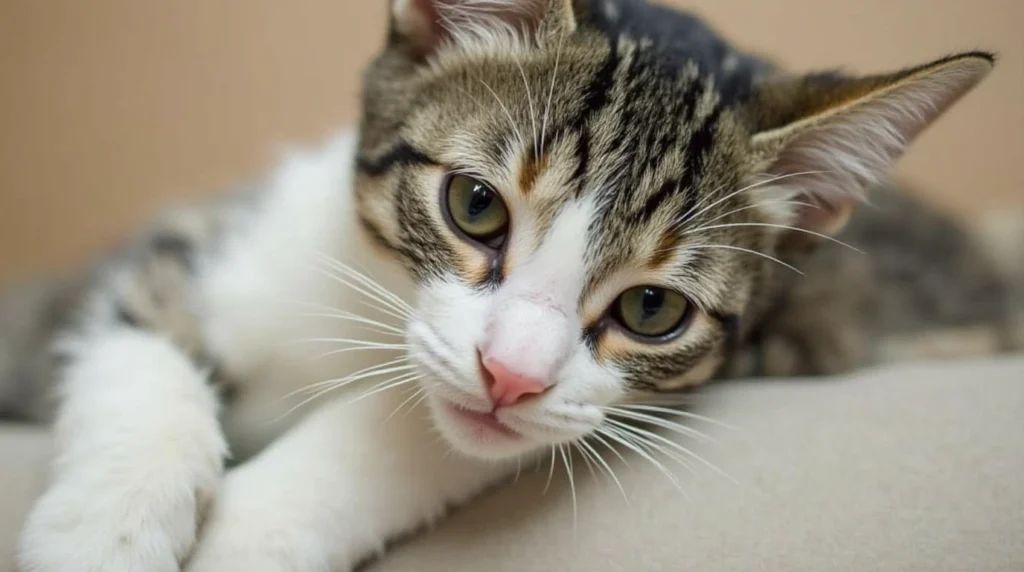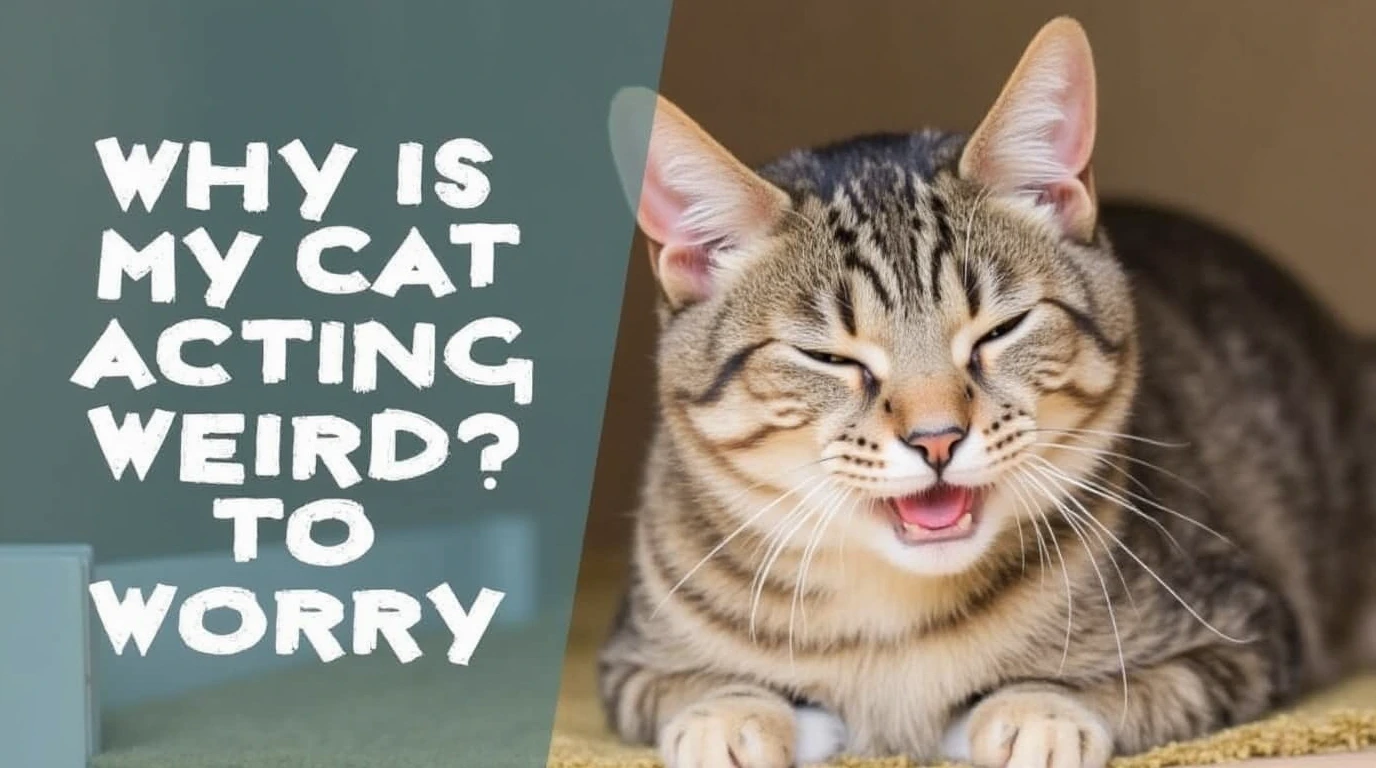Cat acts weird Understanding Your Cat’s Strange Behavior
Have you ever found yourself puzzled by your cat’s odd actions? Perhaps your usually calm feline is suddenly darting around the house or meowing at nothing in particular. Cats are naturally curious creatures, but sometimes their peculiar behavior can be more than just quirky—it could signal underlying issues. Understanding these signs can help you ensure your furry friend’s well-being.
This comprehensive guide explores the reasons behind unusual cat behavior, provides insights into when you should be concerned, and offers practical steps to address these situations. By the end, you’ll feel confident in managing your cat’s behavior and knowing when professional help is needed.

Table of Contents
Common Reasons Why Cats Act Weird
Medical Issues
Your cat’s health plays a significant role in their behavior. Unusual actions could be a subtle cry for help.
- Pain or Discomfort: Cats often hide signs of pain, but you might notice limping, excessive grooming of a specific area, or vocalizations.
- Neurological Problems: Disorientation, seizures, or uncoordinated movements may indicate neurological issues.
Pro Tip: If you observe these symptoms, consult your veterinarian promptly. Early intervention can make a significant difference.
Behavioral Changes
Cats are creatures of habit. Any disruption in their routine can cause unusual behaviors.

- Stress or Anxiety: Have you recently moved or introduced a new pet? Cats can become stressed, leading to hiding, aggression, or excessive grooming.
- Fear or Trauma: Loud noises, unfamiliar environments, or negative past experiences can trigger fear responses.
How to Recognize Serious Symptoms
Physical Warning Signs
Identifying physical changes can help you determine if your cat’s behavior is cause for concern.
- Lethargy: Unusual fatigue or lack of energy.
- Vomiting or Loss of Appetite: Persistent vomiting or refusal to eat may indicate illness.
- Unusual Vocalizations: Loud or frequent meowing could be a sign of discomfort.
Behavioral Red Flags
Behavioral shifts can also provide critical clues.
- Aggression: Sudden hostility, even towards familiar people or pets.
- Excessive Hiding: Staying out of sight for prolonged periods.
- Erratic Movements: Disorientation or stumbling.
When to Act: If these symptoms persist for more than 24 hours or worsen, contact your veterinarian immediately.
What to Do When Your Cat Acts Weird
Immediate Steps
When your cat behaves strangely, staying calm and observant is crucial.
- Assess the Situation: Is the behavior consistent or a one-time occurrence?
- Monitor Their Environment: Look for potential stressors like new pets, noises, or changes in their routine.
- Document Symptoms: Keep a record of unusual behavior to share with your vet.
When to Contact a Veterinarian
Don’t hesitate to seek professional advice if:
- Symptoms persist or escalate.
- Your cat shows signs of severe illness, such as labored breathing or continuous vomiting.
Pros and Cons of Monitoring vs. Immediate Action
Pros of Monitoring cat acts weird
- Gives minor issues time to resolve naturally.
- Avoids unnecessary vet visits, saving time and money.
Cons of Monitoring cat acts weird
- Risk of worsening conditions if left unchecked.
- Delays in addressing serious health problems.
Weigh these options carefully based on your cat’s specific symptoms.
Preventing Unusual Cat Behavior
Routine Health Maintenance
Keeping your cat healthy minimizes the risk of behavioral changes.
- Regular Vet Check-ups: Annual or biannual visits ensure early detection of health issues.
- Proper Nutrition and Hydration: Provide balanced meals and fresh water daily.
Reducing Stress in Cats
Creating a peaceful environment helps reduce stress-related behaviors.
- Safe Spaces: Designate quiet areas where your cat can retreat.
- Gradual Introductions: Introduce new pets or environments slowly to avoid overwhelming your cat.
FAQs
Why is my cat acting weird and staring at nothing?
Cats may stare at nothing due to their heightened senses. However, this behavior could also indicate vision problems or neurological issues.
When should I worry about my cat acting strange?
If your cat’s behavior changes significantly or is accompanied by physical symptoms like vomiting or lethargy, consult a vet immediately.
Can stress cause a cat to act weird?
Yes, stress can trigger unusual behaviors, including hiding, aggression, or excessive grooming. Identify and eliminate the stressor whenever possible.
How do I calm my cat down when they act strange?
Provide a safe, quiet space and consider using calming aids like pheromone sprays or diffusers.
Is it normal for cats to act weird after moving to a new home?
Yes, moving can be stressful for cats. Give them time to adjust and provide a familiar environment to ease the transition.

Conclusion cat acts weird
Understanding why your cat acts weird is essential for their health and happiness. While some behaviors are harmless quirks, others may require prompt attention. By monitoring your cat closely and seeking professional help when needed, you can ensure they live a happy and healthy life.
Don’t wait to take action if you’re concerned. Visit www.meowrealm.com for more expert advice on caring for your feline friend. Share this guide with fellow cat lovers to spread awareness and support our furry companions.

